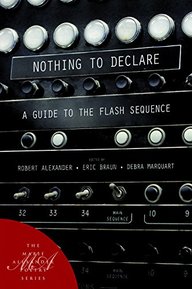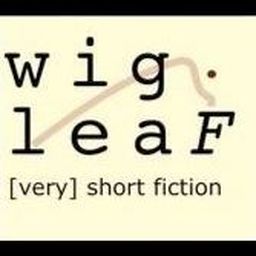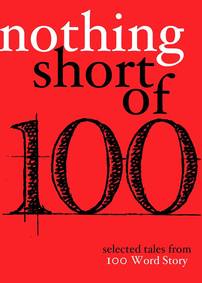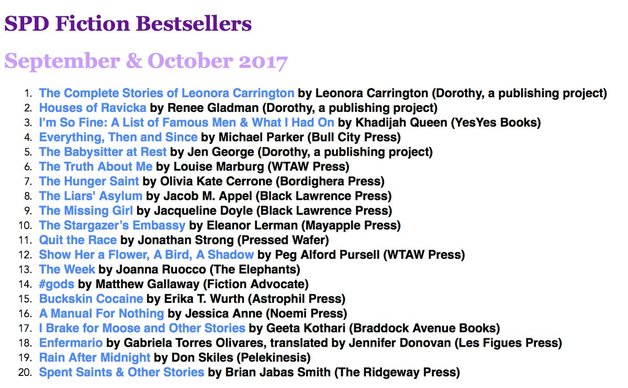|
It was after I’d written my missing girl stories that I read and fell in love with Shirley Jackson’s missing girl novel Hangsaman. I read Ruth Franklin’s incredible biography of Shirley Jackson, A Haunted Life, and then was blown away by The Haunting of Hill House. (One of those books that I thought I’d read, but maybe hadn’t.) I picked up a character that only appears once in the novel, Dudley the caretaker (kind of like the “stealthy valet” in “The Fall of the House of Usher”; those characters fascinate me) and reimagined the story in a flash, with a Dudley that looks like James Dean and a feistier, worldlier (but still unbalanced) heroine. I used to worry that my writing would seem too academic if it referenced other literary works. Now I just acknowledge that it's part of the writer that I am. Literature inspires me.
So thrilled to see my flash out in OCCULUM, which is spooky year round, and in a very short period of time has published tons of writers that I love (among them, flash writers Cathy Ulrich, Jan Stinchcomb, Alina Stefanescu, J. Bradley, Dylan Brie Ducey, and Kathryn McMahon, poets Chloe N. Clark and Stephen Langlois, and many writers I didn’t know before). Here’s “He Looked Like James Dean.” OCCULUM also has amazing graphics, with surreal gifs by the artist Bill Domonkos. "Five Rivers in Hades" is a sequence of five vignettes, and a different version of the Lethe vignette was published six years ago in Everyday Genius (a beautiful zine, now defunct). It's kind of a lyric sequence, not for everyone, and I've hardly sent it out anywhere, but earlier this week got a snippy reply from a magazine saying they don't print previously published material. So I'd just decided not to send it out any further, when I got this nice acceptance from Nicolette Wong at A-Minor, a small elegant zine that I've always wanted to be in. They "lean toward the lyrical, ecentric, ambivalent, and wildly imaginative." They like "surrealist dreamscapes." It will be out in their January 2018 issue. I've suddenly got a lot of flash lined up between now and spring.
For atmosphere, here's an illustration of Styx that Gustav Doré did for The Divine Comedy. I love the flash sequence, a form that hasn't gotten a lot of attention, and was thrilled to be included in a one-of-a-kind anthology in the Marie Alexander Series at White Pine Press: NOTHING TO DECLARE: A GUIDE TO THE FLASH SEQUENCE, edited by Robert Alexander, Eric Braun, and Debra Marquart. The anthology got some great advance blurbs. Tara L. Masih called the book "an important addition to the burgeoning exploration of brief prose and flash fiction." John Dufresne called it "a brave new narrative genre," a collection of "innovative and fearless narratives." Dinty W. Moore described the sequences as "hypnotic, startling, and alive." But there haven't been many reviews. So I was pleased to see that Vestal Review editor Mark Budman has reviewed the anthology in the latest issue of the UK print journal FLASH: THE INTERNATIONAL SHORT-SHORT STORY MAGAZINE (edited by Peter Blair and Ashley Chantler at the University of Chester, the center of the thriving flash scene in the UK). While Mark Budman wishes for a clearer definition of the genre (that may be exactly what attracts me to the genre, its porous boundaries), he praises the anthology as "innovative," "an eclectic collection of anything short and powerful: stories, essays, prose poems, and most often, forms unclassified." I read the 300-page anthology from cover to cover in one sitting. I loved everything in it! I hope the review draws more readers from the international flash community, because this is a very cool book. I had the opportunity to read my flash sequence on Freud's case history of "Dora" twice this year (both times with my husband Steve reading the Freud sections): at a wonderful reading on forgotten women curated by the poet Kathleen McClung, and at a memorable reading at Alley Cat Books in the Mission curated by the Flash Fiction Collective. Definitely fun to read.
I just finished drafting my short blog post on change for CHANGE SEVEN, where I include lines from Muriel Rukeyser's well known poem “Käthe Kollwitz." I ran across another poem by Rukeyser that's so beautiful and so timely that I had to share it here. Both poems are available on the Poetry Foundation website linked to her name here.
"Poem (I lived in the first century of world wars)" by Muriel Rukeyser (1913-1980) I lived in the first century of world wars. Most mornings I would be more or less insane, The newspapers would arrive with their careless stories, The news would pour out of various devices Interrupted by attempts to sell products to the unseen. I would call my friends on other devices; They would be more or less mad for similar reasons. Slowly I would get to pen and paper, Make my poems for others unseen and unborn. In the day I would be reminded of those men and women, Brave, setting up signals across vast distances, Considering a nameless way of living, of almost unimagined values. As the lights darkened, as the lights of night brightened, We would try to imagine them, try to find each other, To construct peace, to make love, to reconcile Waking with sleeping, ourselves with each other, Ourselves with ourselves. We would try by any means To reach the limits of ourselves, to reach beyond ourselves, To let go the means, to wake. I lived in the first century of these wars. Really this is supposed to be my Friday activity, but here I am a day late, working on submissions on a Saturday when I should be grading essays from my creative nonfiction class. Today I'm spending time on my own creative nonfiction instead—two longish essays I'd really like to see published. While I'm working a rejection comes in from SWEET. I love SWEET, which publishes flash creative nonfiction. I had two pieces published there a long time ago. The acceptance from Ira Sukrungruang came immediately, from his phone, with such a nice compliment. I haven't been able to place anything there since. Ira (whom I met at AWP later—love him, love his writing, love the Sweet "Contributor's Copy" t-shirt he gave me) is still the editor, but no longer the primary reader. They take months and months (these flash have been there since August 1). It was a nice rejection, asking me to send something else. But they like to see two or three flash, and I only have one nonfiction flash at the moment, so I made a note to myself and filed away the rejection with a sigh. Turned back to my creative nonfiction, trying to decide which essay to send where. It's a time-consuming process, reading guidelines and sample essays, trying to figure out what work of mine (if any) would be the best fit.
I didn't open the email from CHANGE SEVEN, since the first line looked like all rejections ("Thank you for sending …"). When I got around to opening the email, it was exciting to find that it was an acceptance of my flash "Florida." The editor Sheryl Monks invited me to do an optional blog entry on what change means to me, and because the flash involves violence against women, and my chapbook involves violence against women, and #MeToo seems to have precipitated a tidal wave of stories in that area (and at least some change, I hope not temporary), I feel like I should do that. I'm glad for the opportunity, but also don't know when I'm going to find time for it. I also spent a lot of time this week on a very unpleasant exchange with a literary magazine (not one that I knew before, but a good one affiliated with an mfa program) that wanted to interview me about the chapbook. The questions their grad student fiction editors came up with were so devastatingly misogynist they took my breath away. I declined the interview. The faculty advisor asked me to explain what had offended me, and I spent a long time spelling it out. We parted by mutual agreement. It reinforces my sense that violence against women, sexual harassment, victim-blaming, and silencing are crucial issues, and also left me uncomfortably aware that once you publish something, anyone might be reading your work, and you are open to misinterpretations you never anticipated. Scott Garson, the editor at Wigleaf, wrote to me today to say that they've nominated my micro "Little Darling" for a Pushcart Prize. I'm floored. It was already exciting to get into Wigleaf, and then to get such a great response from readers, and now this.
Really excited to have flash forthcoming in some really kick-ass journals and zines: Post Road, Occulum, Lost Balloon, Fiction Southeast, Spelk, and Hotel Amerika (between December 1 and next spring, in that order). My micro "Cassiopeia" and Steve's micro "Lil" will be coming out in a great anthology on April 3, 2018: Nothing Short Of 100: Selected Tales from 100 Word Story, edited by Grant Faulkner, Lynn Mundell, and Beret Olsen (San Francisco: Outpost 19, 2018). It's available for pre-order from Amazon Here's a press release with the very distinguished list of contributors. Since both the publisher and editors are in the Bay Area, I hope there will be some readings here.
|
Archives
July 2024
Categories
|






 RSS Feed
RSS Feed